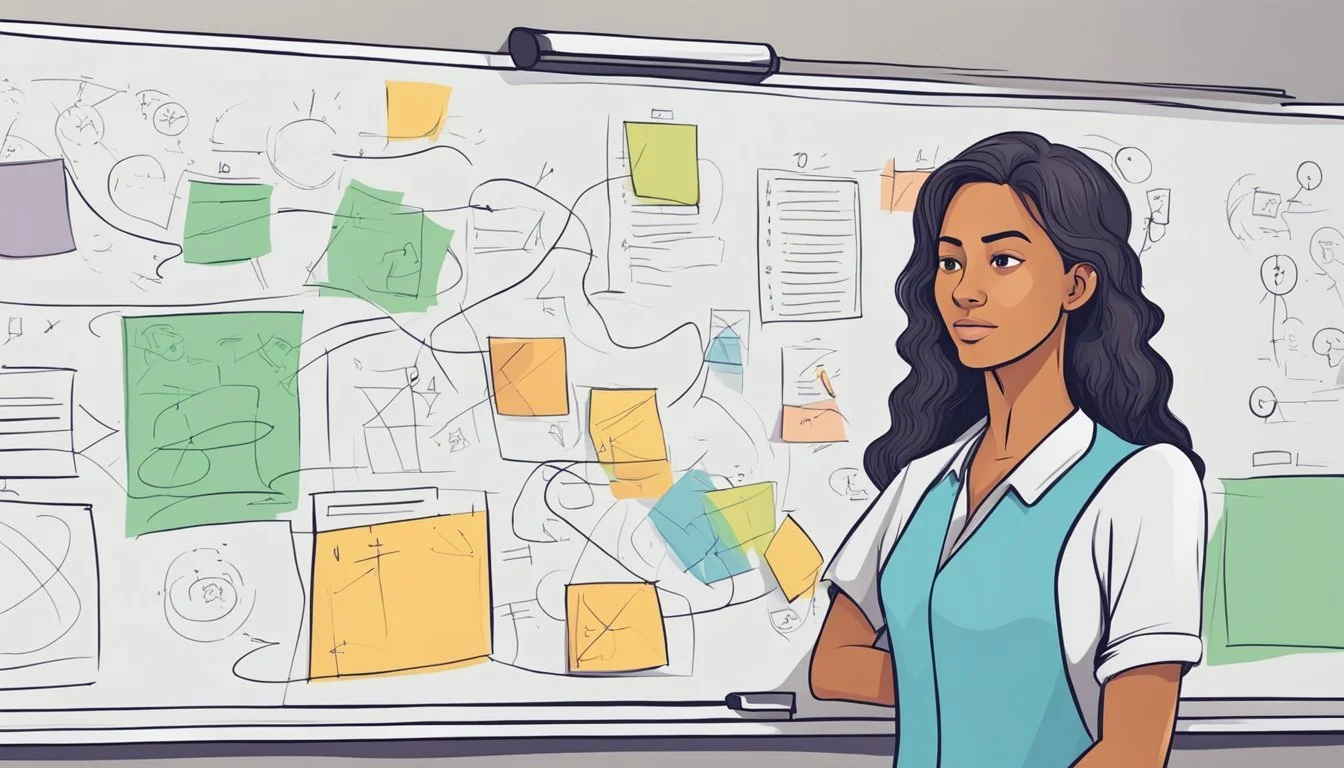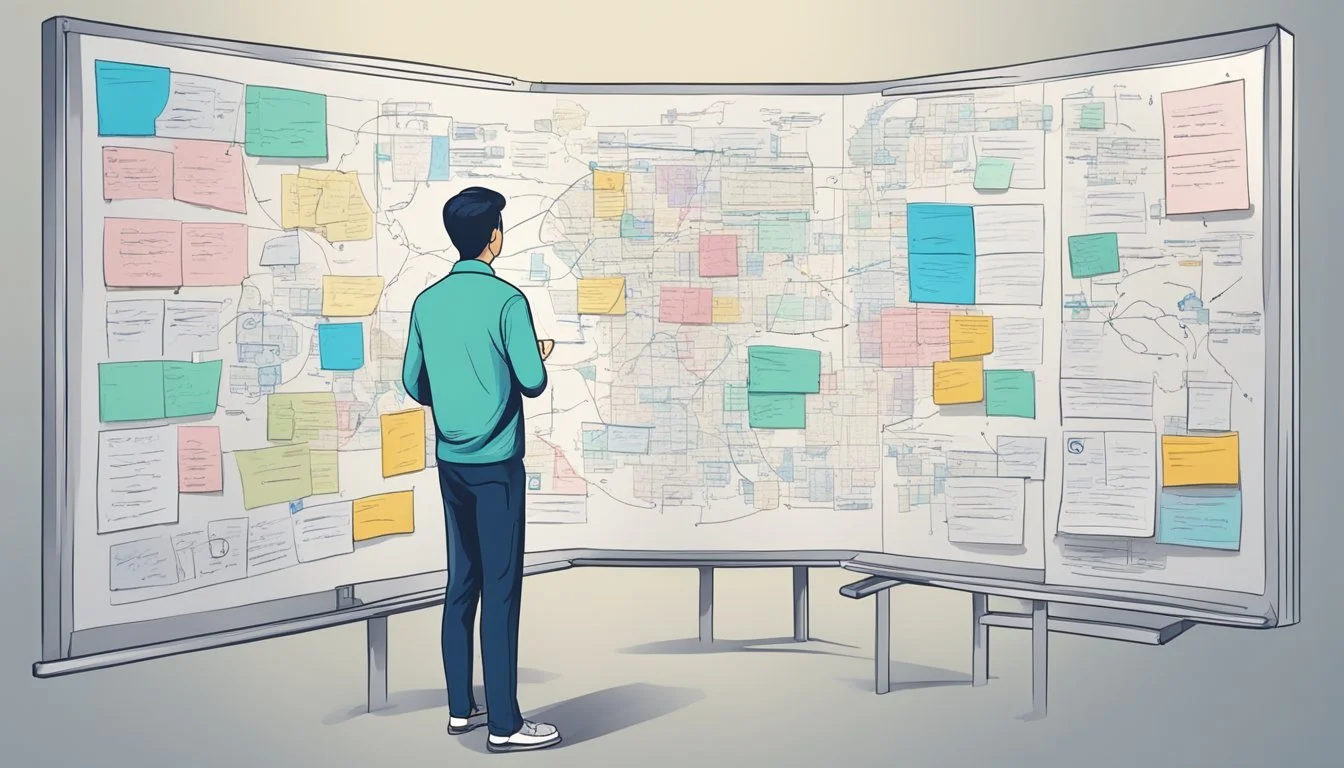11 Signs You're a Highly Versatile Problem Solver: Traits of Exceptional Thinkers
Being a highly versatile problem solver is a valuable skill in both personal and professional settings. Versatile problem solvers can adapt to various challenges, utilizing a mix of creativity, logical reasoning, and resilience.
Understanding the signs of a versatile problem solver can help individuals recognize and cultivate these qualities in themselves and others. This article will highlight key traits that are often seen in people who excel at tackling diverse issues successfully.
1) Quickly Identifies Core Issues
A highly versatile problem solver has the skill to pinpoint the core issues in any situation rapidly.
They sift through large volumes of data and information, discerning what truly matters.
Being a good listener helps in understanding different perspectives, which is essential for recognizing the main problem.
Effective problem solvers keep their focus on identifying the root cause rather than getting bogged down by irrelevant details.
This ability ensures they address the real issues instead of just treating symptoms.
They maintain a clear and calm mindset, which enhances their judgment and decision-making.
In dynamic environments, this skill helps in adapting quickly and formulating efficient strategies.
2) Adapts Strategies On-the-Fly
A hallmark of a versatile problem solver is the ability to adapt strategies on-the-fly. This skill involves swiftly assessing a situation, recognizing when a plan isn't working, and pivoting to a new approach without hesitation.
Such individuals keep an array of strategies in their mental toolkit. They can switch gears promptly, navigating new challenges effectively. This agility allows them to stay ahead, especially when dealing with unpredictable or rapidly changing conditions.
Being adaptable means they can also leverage past experiences to inform new tactics. Previous successes and failures provide valuable insights, aiding quick decision-making and problem resolution. This adaptability ensures they are rarely caught off guard.
They thrive in environments where flexibility is crucial. Their capacity to adjust strategies helps maintain momentum, even when initial plans falter. Whether it involves a minor tweak or a complete overhaul, they implement changes seamlessly.
Their proactive nature ensures continuous progress. Instead of sticking rigidly to a failing plan, they embrace change, finding better solutions quickly. This dynamic approach minimizes downtime and maximizes efficiency in problem-solving scenarios.
Being adaptable on-the-fly also fosters innovation. They aren't afraid to experiment with unconventional methods, often leading to breakthrough solutions. This openness to new ideas keeps their problem-solving skills sharp and effective.
3) Balances Multiple Perspectives
A versatile problem solver effectively balances multiple perspectives. They understand that relying solely on their own viewpoint may result in blind spots. By actively seeking and valuing diverse opinions, they create a more comprehensive understanding of the issue.
Good listening skills play a crucial role in this process. Listening to others’ concerns and ideas allows them to incorporate different angles into their analysis. This not only fosters collaboration but also leads to innovative solutions.
Logical reasoning is another asset for those who balance perspectives well. They connect various viewpoints into a coherent argument structure, ensuring all relevant factors are considered. This skill helps in constructing well-rounded arguments and solutions.
Furthermore, being open to new ideas is essential. Those who excel in problem-solving do not dismiss unconventional ideas without exploration. This openness can lead to unique, effective solutions to complex problems.
Incorporating multiple perspectives requires patience and a willingness to accept that their initial assumptions may need adjustment. This adaptability enables them to refine their approach and achieve better outcomes. For more traits of great problem solvers, consider exploring this problem-solving mindset article.
Lastly, balancing perspectives also involves prioritizing tasks. They efficiently manage their focus, ensuring that each viewpoint receives adequate consideration. This ability contributes significantly to their adeptness at resolving multifaceted issues.
4) Thinks Both Creatively and Logically
A versatile problem solver employs both creativity and logic. They balance imaginative ideas with rational analysis to find effective solutions.
This individual can brainstorm innovative concepts and then evaluate them critically. They combine artistic thinking with practical assessment, ensuring their ideas are both original and feasible.
Their ability to switch between right-brain and left-brain activities makes them adept at addressing diverse challenges. They see the big picture while also focusing on details.
Such a person is inquisitive and often questions everything. They explore various perspectives, leading to comprehensive and well-rounded solutions.
Their talent in both creative and logical thinking helps them approach problems from multiple angles. This duality allows them to craft solutions that are not only inventive but also practical and efficient.
5) Anticipates Potential Obstacles
A highly versatile problem solver has a keen sense for anticipating potential obstacles. They do not wait for issues to arise; instead, they proactively identify potential hurdles that could impede progress. This foresight allows them to prepare in advance and mitigate risks effectively.
They regularly analyze patterns, trends, and historical data to foresee possible challenges. By staying vigilant and attentive to details, they can detect warning signs early on. This proactive approach is essential in navigating complex projects and ensuring smooth operations.
Engaging with team members and stakeholders to gather diverse perspectives further enhances their ability to predict problems. Collaboration and open communication are key components in identifying areas of concern and creating preventive strategies.
Moreover, conducting thorough risk assessments and scenario analyses helps them stay prepared. They evaluate potential impacts and devise contingency plans accordingly. This comprehensive planning enables them to respond swiftly and efficiently when obstacles do arise.
Versatile problem solvers also maintain a flexible mindset. They adapt their strategies based on new information and changing circumstances, ensuring they remain ahead of potential issues. Their agility in thinking and planning makes them valuable assets in any situation.
For more in-depth guidance on how to anticipate problems and better overcome obstacles, consider exploring resources such as this article that delve into effective problem anticipation strategies.
6) Communicates Solutions Effectively
Effective communication is a hallmark of a highly versatile problem solver. They articulate the problem clearly and present solutions in a way that everyone can understand.
Good listeners ensure that they grasp the perspectives of others. This trait is essential for framing solutions that are both practical and acceptable to all parties involved.
A strong communicator can take complex issues and distill them into simple, understandable terms. This skill helps facilitate consensus and ensures that all team members are on the same page.
Visual aids, such as charts or diagrams, often complement their verbal explanations. These tools can make abstract ideas more concrete and easier to grasp for everyone involved.
Regular updates and feedback loops are part of their communication strategy. Keeping stakeholders informed about progress and any adjustments helps maintain transparency and trust throughout the problem-solving process.
A proficient problem solver also anticipates questions and objections. They prepare answers and explanations in advance, ensuring smooth and efficient discussions.
Mastering communication in problem-solving requires practice and attention to detail. By honing this skill, they ensure that solutions are not only well-conceived but also well-received by all parties involved. For further insights, consider exploring McKinsey's insights on this topic.
7) Learns from Past Mistakes
Versatile problem solvers recognize the importance of learning from their own errors. Each mistake is viewed as a valuable lesson, offering insights that can prevent future problems.
When encountering a setback, they analyze what went wrong. They dissect the situation to understand the root causes and identify specific actions that led to the undesired outcome.
This analytical approach enables them to implement changes in their process. They adjust strategies, revise plans, and adapt their methods based on the lessons learned.
Critically, they maintain a growth mindset. They believe that skills and intelligence can be developed through effort and perseverance, which includes learning from failure.
Their adaptability ensures continuous improvement. By integrating lessons from past mistakes, they refine their problem-solving abilities, enhancing their effectiveness over time.
For example, a project manager who evaluates failed project elements gains insights to improve future project planning. This reflective process is crucial for progress and innovation.
Additionally, they are not afraid to make new mistakes, understanding that each misstep provides fresh opportunities for growth. This resilience and willingness to learn contribute to their versatility as problem solvers.
8) Stays Calm Under Pressure
One hallmark of a highly versatile problem solver is the ability to stay calm under pressure. This trait enables them to think clearly and make rational decisions even in stressful situations.
People who stay calm maintain an even-tempered nature. They avoid letting emotions sway their decision-making process, which helps them assess situations objectively.
Those with this skill often thrive in high-pressure environments by channeling their energy into finding solutions rather than being overwhelmed by the problem. This ability to remain calm allows them to effectively manage and resolve issues as they arise.
Resilience plays a crucial role as well. Resilient individuals are not deterred by setbacks; instead, they recover quickly and continue to push forward. They view challenges as opportunities to apply their problem-solving skills.
Effective communication is another useful component. By discussing the problem with trusted colleagues or friends, they gain new perspectives and potential solutions.
An example of these traits can be found in professionals who consistently perform well in crises. Their calm demeanor under stress sets them apart and lends a sense of stability and confidence to those around them.
9) Displays Methodical Approach
A versatile problem solver often displays a methodical approach to tackling challenges. They break down complex issues into manageable parts. By systematically addressing each component, they ensure that no aspect of the problem is overlooked.
Taking a step-by-step approach is crucial for ensuring every detail is addressed. This method reduces the risk of missing critical elements and allows for a more thorough analysis of the problem at hand.
This logical sequence aids in identifying the root cause of problems. It facilitates the development of a structured plan to implement solutions effectively. Such an approach is particularly useful in environments where precision and accuracy are paramount.
A methodical problem solver often documents each step of the process. This not only provides a clear path for others to follow but also aids in reviewing and refining methods for future problems. Consistency in applying this approach helps in building reliable and reproducible results. This practice is detailed in guides like Mastering Analytical Thinking.
Incorporating feedback is also a hallmark of methodical thinkers. They continuously assess and adapt their methods based on new information and outcomes. This adaptability ensures the continuous improvement of their problem-solving techniques.
Such a precise and organized approach is essential for long-term success in problem-solving, ensuring solutions are both effective and sustainable.
10) Collaborates Across Disciplines
A highly versatile problem solver embraces collaboration across various fields. This individual seeks diverse perspectives from professionals in different areas, enhancing the robustness of their solutions.
Cross-disciplinary collaboration fosters creativity. By engaging experts from unrelated fields, innovative approaches flourish, addressing complex issues more effectively.
Incorporating insights from different disciplines ensures solutions are comprehensive. For example, combining engineering with health sciences can tackle problems in global stewardship more holistically.
Establishing clear common goals is essential in cross-disciplinary work. Shared objectives unite team members, turning them into allies, as highlighted in a guide for leaders on collaboration techniques. This unity drives more efficient problem-solving.
Cross-disciplinary collaboration also accelerates decision-making. Challenging teams to develop creative solutions and making immediate decisions enhances agility. The approach discussed in an article on the power of cross-disciplinary problem-solving illustrates this point convincingly.
Natural problem solvers understand the importance of listening. By valuing the perspectives of others, they gather comprehensive views crucial for effective collaboration, as stated in an article on being a natural problem solver.
11) Utilizes Available Resources Efficiently
A highly versatile problem solver knows how to use available resources effectively. They recognize the tools at their disposal and understand how to apply them in various situations.
Efficient problem solvers do not waste time or resources. They prioritize tasks and allocate resources where they will have the greatest impact. This strategic approach ensures optimal results.
They also make use of technology and software tools to streamline processes. For instance, they might use project management software to track progress and ensure deadlines are met.
Networking is another crucial aspect. They reach out to colleagues, industry experts, or even online forums for additional insights and advice. By leveraging the knowledge and experience of others, they enhance their problem-solving capabilities.
Additionally, they continuously seek to improve their understanding of resources. Whether it’s staying updated on the latest tools or learning new skills, they are always in a state of growth and adaptation.
This proficiency with resources is integral to their problem-solving success. By using what’s available to them wisely, they can navigate challenges with confidence and precision.
For more on essential problem-solving traits, visit 15 Impressive Traits Of People Who Are Natural Problem Solvers.
Understanding Versatility in Problem Solving
Versatility in problem solving involves adapting to various challenges effectively and employing a range of strategies. Key aspects include a clear understanding of what versatility entails and the characteristics that distinguish a versatile problem solver.
Definition and Importance
Versatility in problem solving is the ability to approach different problems with a diverse set of skills and techniques. It means not being confined to one method but seamlessly shifting between strategies that best suit the situation. This adaptability is crucial in environments where problems are unpredictable and varied.
A versatile problem solver can tackle technical issues, interpersonal conflicts, and creative challenges. This adaptability leads to more innovative solutions and better decision-making. Understanding different perspectives and being open to new ideas are essential. It allows individuals to address the root cause of problems rather than just the symptoms.
Core Characteristics
Versatile problem solvers possess several key traits. One important characteristic is resilience. They do not give up easily when faced with a challenging problem. They remain persistent and explore alternative solutions.
Empathy is another vital trait. Being able to understand and relate to the concerns and ideas of others is crucial. This helps in collaborative problem-solving and leads to more comprehensive solutions.
Being a good listener further enhances this ability.
Critical thinking and creativity are also essential. Versatile problem solvers analyze problems meticulously while thinking outside the box to find innovative solutions. They combine logic with innovation, ensuring a balance of practical and original approaches.
Summary
Understanding versatility in problem solving requires acknowledging the importance of adaptability and recognizing the core characteristics like resilience, empathy, critical thinking, and creativity that enable individuals to effectively navigate various challenges. This versatility not only leads to better solutions but also ensures comprehensive and innovative problem-solving approaches.
Developing Versatile Problem-Solving Skills
Versatile problem-solving skills hinge on critical thinking and creativity. Both are essential in efficiently tackling complex challenges from multiple perspectives.
Critical Thinking
Critical thinking involves analyzing facts and forming a judgment. This skill allows individuals to evaluate problems from various angles, consider potential solutions, and determine the most effective course of action.
Key elements of critical thinking include:
Evaluation: Assessing the validity of information and its relevance to the problem.
Analysis: Breaking down the problem into smaller, more manageable components.
People who are adept at critical thinking actively question assumptions, seek out all available information, and remain open to alternative solutions. They prioritize logical reasoning over emotional responses, ensuring that their decisions are based on solid evidence.
Creativity
Creativity is the ability to generate original ideas and think outside the box. This aspect of problem-solving involves looking beyond conventional approaches and exploring innovative solutions.
Ways to enhance creativity include:
Brainstorming: Generating a large number of ideas without judgment to explore all possibilities.
Mind Mapping: Visualizing connections between concepts to identify new relationships and patterns.
Leveraging creativity means embracing a willingness to take risks and experiment with untested methods. Creative problem-solvers draw on diverse experiences and knowledge to find unique solutions that others may overlook. This approach helps in navigating complex and unprecedented challenges effectively.













